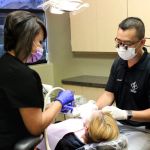- 1-Importance-of-Oral-Hygiene-for-Braces-and-Retainers
- 2-Daily-Oral-Hygiene-Tips-for-Braces-Users
- 3-Effective-Care-for-Retainers
- 4-Common-Challenges-and-How-to-Overcome-Them
- 5-Finding-the-Best-Products-and-Services
1. The Importance of Oral Hygiene for Braces and Retainers
Maintaining excellent oral hygiene while wearing braces or retainers is essential not only for a beautiful smile but also for long-term dental health. Braces and retainers create additional surfaces where food particles and plaque can accumulate, increasing the risk of cavities, gum disease, and unpleasant odors. Understanding the specific needs of oral care during orthodontic treatment helps prevent these problems and supports the success of your dental corrections.
1.1 How Braces and Retainers Affect Oral Health
Braces consist of brackets and wires that can trap food easily, while retainers, especially removable ones, require consistent cleaning to avoid bacterial buildup. Without proper care, enamel can erode around brackets, and gums can become inflamed. Therefore, adopting targeted oral hygiene tips for people with braces and retainers care is critical to avoid these complications.
2. Daily Oral Hygiene Tips for Braces Users
Oral hygiene with braces demands a bit more attention and the right techniques. The goal is to remove food debris and plaque thoroughly without damaging the orthodontic appliances.
2.1 Brushing Techniques Tailored for Braces
Using a soft-bristled toothbrush or an electric toothbrush designed for orthodontic care can significantly improve cleaning efficiency. Brush at a 45-degree angle to the gums and carefully around each bracket and wire. Spend at least two minutes brushing, and never rush this step. Some patients find that breaking brushing into two sessions daily works better for thorough cleaning.
2.2 Flossing with Braces
Flossing may seem daunting with braces, but it’s essential. Using floss threaders or orthodontic floss helps navigate around wires and reach between teeth. Daily flossing reduces the risk of gum inflammation and tooth decay in those hard-to-reach spots.
2.3 Rinsing and Mouthwash
Incorporating an antimicrobial or fluoride mouthwash can enhance oral hygiene by reaching areas that brushing and flossing might miss. It also strengthens enamel and reduces plaque buildup, providing an extra layer of protection during orthodontic treatment.
3. Effective Care for Retainers
Retainers require their own set of care practices, especially since many are removable and susceptible to damage or bacterial growth if neglected.
3.1 Cleaning Retainers Daily
Remove your retainer and rinse it after every meal to prevent buildup. Use a soft toothbrush and mild soap or specialized retainer cleaner to brush it gently at least once daily. Avoid hot water as it can warp the plastic components.
3.2 Proper Storage and Handling
Always store your retainer in a ventilated case when not in use to prevent bacterial growth. Avoid wrapping it in tissue or leaving it exposed, which can lead to damage or loss. Handling retainers carefully extends their lifespan and keeps your orthodontic results intact.
3.3 Regular Dental Checkups
Frequent visits to your orthodontist or dentist ensure your retainer fits well and remains in good condition. Professional cleanings can also address any buildup that home care might miss.
4. Common Challenges and How to Overcome Them
Many individuals struggle with maintaining oral hygiene when wearing braces or retainers. Time constraints, discomfort, and uncertainty about the right tools often contribute to inadequate care.
4.1 Time Management for Consistent Care
Setting a routine helps ensure consistent hygiene. For example, brushing right after meals and flossing before bed can become habitual with some planning. Using timers or reminders can also keep oral care on track.
4.2 Managing Discomfort
Braces may cause irritation, making brushing uncomfortable at times. Using orthodontic wax to cover sharp edges and choosing softer toothbrushes can alleviate discomfort and encourage thorough cleaning.
4.3 Choosing the Right Tools
Investing in orthodontic-specific oral care tools like interdental brushes, water flossers, and fluoride rinses can simplify the process. These products are designed to clean efficiently around braces and retainers, making hygiene less cumbersome.
A personal story from Emily, who struggled with maintaining her oral hygiene after getting braces, illustrates this well. Initially overwhelmed, she found her routine transformed by switching to a water flosser and electric toothbrush recommended by her orthodontist. Within weeks, she noticed less plaque buildup and healthier gums, which motivated her to stay consistent.
5. Finding the Best Products and Services
Choosing reliable products and professional services can make a significant difference in oral hygiene for people with braces and retainers care. For those seeking the best tools and expert advice, Dentistry Toothtruth offers a curated selection of high-quality dental products and access to trusted orthodontic care providers.
5.1 Why Trust Specialized Providers
Specialized dental suppliers understand the unique needs of orthodontic patients and offer products that deliver superior results. From orthodontic toothbrushes to cleaning kits for retainers, using the right tools ensures optimal hygiene and comfort.
5.2 Professional Guidance
Consulting professionals through platforms like Dentistry Toothtruth helps tailor oral care routines to individual needs, making the journey through braces or retainer wear smooth and successful.







 Thomas Pham Dentistry4.0 (26 review)
Thomas Pham Dentistry4.0 (26 review) Ingleside Dental SF4.0 (685 review)
Ingleside Dental SF4.0 (685 review) Family and Cosmetic Dentistry of Randolph, Dr. Anthony Fusco & Dr. Joseph Caravano5.0 (280 review)
Family and Cosmetic Dentistry of Randolph, Dr. Anthony Fusco & Dr. Joseph Caravano5.0 (280 review) Mark J. Mele, DMD5.0 (86 review)
Mark J. Mele, DMD5.0 (86 review) Dr. Nathan Hammond4.0 (346 review)
Dr. Nathan Hammond4.0 (346 review) Dr. Donovan Hansen4.0 (22 review)
Dr. Donovan Hansen4.0 (22 review) The Importance of Oral Health Education During Pregnancy for a Healthy Pregnancy
The Importance of Oral Health Education During Pregnancy for a Healthy Pregnancy Best Tips for Brushing Your Teeth Properly for Healthy Gums: Essential Techniques for Oral Health
Best Tips for Brushing Your Teeth Properly for Healthy Gums: Essential Techniques for Oral Health Why Skipping Dental Checkups Can Lead to Bigger Oral Health Problems
Why Skipping Dental Checkups Can Lead to Bigger Oral Health Problems Advantages of Porcelain Dental Restorations
Advantages of Porcelain Dental Restorations How Can Diabetes Cause Tooth and Gum Problems? Preventing and Managing Oral Health Issues
How Can Diabetes Cause Tooth and Gum Problems? Preventing and Managing Oral Health Issues Healthy Habits for Promoting Good Oral Health and Hygiene: Tips for a Healthy Smile
Healthy Habits for Promoting Good Oral Health and Hygiene: Tips for a Healthy Smile